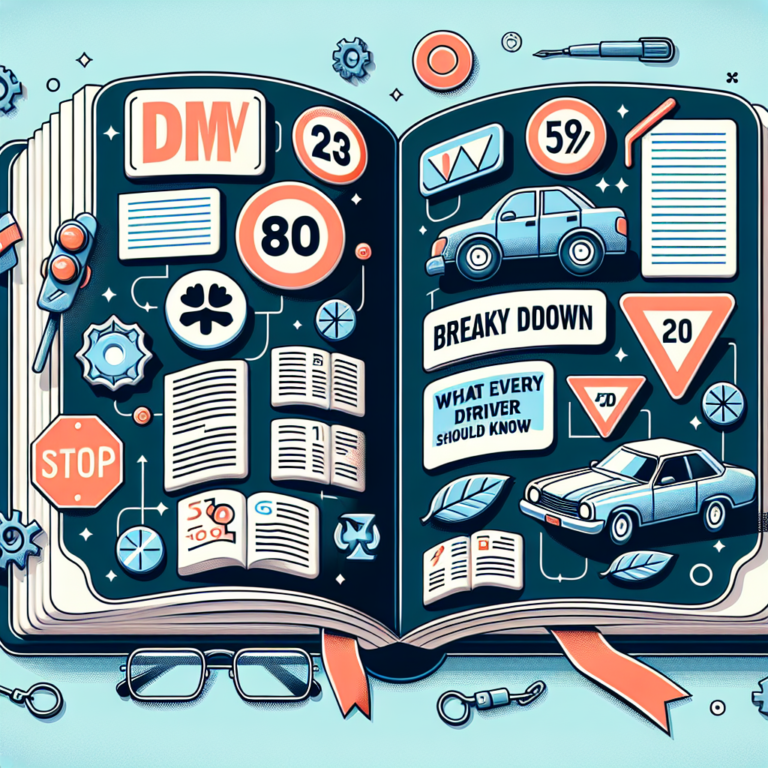In an era of rapid change, the Department of Motor Vehicles (DMV) is evolving to enhance road safety, streamline services, and adapt to technological advancements. Recent updates in DMV regulations reflect these changes, impacting drivers across the nation. Whether you’re a seasoned road warrior or a new driver just hitting the pavement, understanding these new regulations is vital. This article breaks down the key changes every driver should know.
1. Enhanced Identification Requirements
One of the most significant shifts involves stricter identification requirements. To improve security and reduce identity theft, states are moving toward requiring more comprehensive documentation for obtaining or renewing a driver’s license.
What You Need to Know:
- Proof of Identity: In addition to a government-issued ID, you may now need to provide documents that prove your legal presence in the U.S., such as a birth certificate or passport.
- Residency Verification: A utility bill, bank statement, or lease agreement may be required to confirm your address.
Make sure to check your state’s specific requirements before heading to the DMV.
2. Emphasis on Real ID Compliance
Following the Real ID Act, states must comply with federal standards to issue licenses meant for air travel and federal facility access. By May 2025, only Real IDs will be accepted for such purposes.
Key Points:
- Real ID Applications: If you plan on traveling domestically or visiting federal facilities, ensure you have a Real ID by the deadline. You can identify if your state issues Real IDs and the necessary steps to obtain one by checking the DMV website.
3. Changes in Testing Protocols
In an effort to make testing processes more efficient and relevant, numerous states have revamped their testing protocols for obtaining a license. This includes both written and driving tests.
Important Changes:
- Online Written Tests: Many states now offer the option to take the written exam online. This convenience allows drivers to prepare at their own pace.
- Updated Driving Tests: Expect more real-world scenarios in driving tests, including assessments of defensive driving techniques and technology usage like GPS systems.
4. Stricter Penalties for Distracted Driving
Distracted driving regulations have become more stringent as states seek to combat the alarming increase in road accidents.
What to Anticipate:
- Increased Fines: Expect higher fines for distracted driving violations, particularly for texting while driving.
- Points on License: Accumulating points for distracted driving offenses may negatively impact your insurance rates.
Stay focused on the road; it could save you a hefty fine and protect lives.
5. Expanded Access to Online Services
In response to the COVID-19 pandemic, DMV offices across the nation have accelerated the digital transformation of their services. This change aims to minimize congestion and promote safety.
Advantages for Drivers:
- Online Renewals: Most states now allow for online license renewals, registration, and even some forms of testing.
- Virtual Appointments: Many DMVs are offering virtual appointments for various services, reducing wait times and improving the user experience.
6. Focus on Eco-Friendly Initiatives
As environmental concerns become more central to public policy, several DMV regulations are shifting towards promoting eco-friendly practices within the automotive industry.
Notable Initiatives:
- Electric Vehicle Incentives: States are introducing additional incentives for electric vehicle (EV) ownership, including tax credits and rebates.
- Eco-Driving Education: Expect educational programs aimed at teaching drivers about fuel-efficient driving practices.
7. Changes in Vehicle Registration and Titling
New regulations have also been introduced to streamline vehicle registration and titling processes.
What You Should Consider:
- Immediate Registration: Some states now allow for immediate registration upon purchase of a vehicle, simplifying the transaction process.
- Digital Title Registration: An increasing number of states are transitioning to digital titles to ease the process of ownership transfer.
Conclusion
With the recent changes in DMV regulations, it’s crucial for every driver to stay informed and adapt to the evolving landscape. From stricter identification protocols to enhanced online services, these regulations are designed to improve safety and efficiency on the roads. Whether you’re renewing your license, considering the purchase of an electric vehicle, or navigating new rules about distracted driving, understanding these changes will empower you to be a responsible and informed driver. Be sure to regularly check your state DMV’s website for the most up-to-date information, and drive safely!


